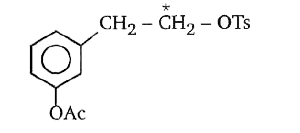In the TCA cycle, GTP is formed during which of these reactions:
Citric acid → alpha-ketoglutaric acid
Malic acid → oxalo-acetic acid
alpha - ketaglutaric acid → Succinyl Co A
Succinyl-Co A → Succinic acid
The correct Answer is:D
To solve the question regarding the formation of GTP in the TCA cycle, we will analyze the reactions involved in the cycle step by step.
1. Understanding the TCA Cycle: The TCA cycle, also known as the Krebs cycle or citric acid cycle, is a series of chemical reactions that occur in aerobic organisms to release stored energy through the oxidation of acetyl coenzyme A.
2. Identifying the Reactions: The question provides four different reactions that occur in the TCA cycle:
- Reaction 1: Citric acid to alpha-ketoglutaric acid
- Reaction 2: Malic acid to oxaloacetic acid
- Reaction 3: Alpha-ketoglutaric acid to succinyl coenzyme
- Reaction 4: Succinyl coenzyme to succinic acid
3. Analyzing Each Reaction:
- Reaction 1: Citric acid to alpha-ketoglutaric acid involves the release of CO2 and the formation of NADH, but no GTP is produced.
- Reaction 2: Malic acid to oxaloacetic acid also produces NADH, but does not produce GTP.
- Reaction 3: Alpha-ketoglutaric acid to succinyl coenzyme produces NADH and CO2, but does not produce GTP.
- Reaction 4: Succinyl coenzyme to succinic acid is the reaction where GTP is produced. This reaction involves the conversion of succinyl coenzyme A to succinate, and during this process, one molecule of GTP is formed.
4. Conclusion: Based on the analysis, the correct answer to the question is that GTP is formed during the reaction where succinyl coenzyme is converted to succinic acid.
Final Answer:
GTP is formed during the reaction of succinyl coenzyme to succinic acid.
---
- Reaction 1: Citric acid to alpha-ketoglutaric acid
- Reaction 2: Malic acid to oxaloacetic acid
- Reaction 3: Alpha-ketoglutaric acid to succinyl coenzyme
- Reaction 4: Succinyl coenzyme to succinic acid
- Reaction 1: Citric acid to alpha-ketoglutaric acid involves the release of CO2 and the formation of NADH, but no GTP is produced.
- Reaction 2: Malic acid to oxaloacetic acid also produces NADH, but does not produce GTP.
- Reaction 3: Alpha-ketoglutaric acid to succinyl coenzyme produces NADH and CO2, but does not produce GTP.
- Reaction 4: Succinyl coenzyme to succinic acid is the reaction where GTP is produced. This reaction involves the conversion of succinyl coenzyme A to succinate, and during this process, one molecule of GTP is formed.
GTP is formed during the reaction of succinyl coenzyme to succinic acid.
Similar Questions
Knowledge Check
Product(s) formed during this reaction is/are :
 A
A B
B C
C Dboth (a) and (b)
Dboth (a) and (b)
In Krebs cycle, FADH2 is formed during conversion of
View SolutionIntermediate formed during E2 reaction is -
View SolutionIntermediate formed during E2 reaction is -
View SolutionNo new substance is formed during a chemical reaction………..
View SolutionATP and NADPH molecules formed during light reaction are utilised in the dark reaction.
View SolutionMaximum filling of the ventricles takes place during which phase of the cardiac cycle?
View SolutionKrebs cycle is involved during the oxidation of
View Solution
